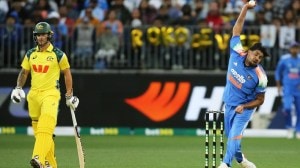Well begun, now how to get it half-done
The visit of US Deputy Secretary of State Richard Armitage to Pakistan and India appears to have gone off successfully for all parties. In I...

The visit of US Deputy Secretary of State Richard Armitage to Pakistan and India appears to have gone off successfully for all parties. In Islamabad, he obtained assurances that Pakistan did not want a war and would not start one.
More important, he extracted from General Pervez Musharraf, who like him, has been a special forces commando in earlier days—which possibly made their two-hour discussions easier—the re-endorsement that infiltration and terrorism across the borders in India has been ended and will not be allowed in future.
This, in due course, should bring an end to the nearly two-decade long war through terror that Islamabad has been waging against us. But the reality is unlikely to be so simple although Musharraf’s Chief of Staff during the Kargil War three years ago had stated that the Army had complete control over the mujahideen tap.
Pakistan is unlikely to give up its three-decade-old passionately held belief in a strategy that has been an act of faith in the Army since Musharraf was a subaltern.
The United States, at the highest levels, has made it clear that it wants Pakistan to stop infiltration across the borders ‘‘permanently.’’
Verification of this infiltration, therefore, is a critical factor for the success of the counter-terrorist campaign. It would appear that Prime Minister Vajpayee’s apparent off-the-cuff remark at Almaty about the possibility of joint patrolling by India and Pakistan to check infiltration was not a casual diversionary tactic.
Armitage, who apparently had come with the object of discussing numerous options for what he referred to as ‘‘monitoring mechanisms,’’ appeared optimistic after his talks with Musharraf.
Pakistan, which had rejected Vajpayee’s offer of joint verification also changed its position on Thursday, the day Armitage was in Islamabad.
Armitage and his patently noticeable sincerity is no newcomer to New Delhi and has many friends here, many of whom remember his arguments in the mid-1990s that since the US co-operated with India in the mid-1980s (referring to the Indo-US MoU on transfer of sensitive military technology) during the peak of Cold War when the Soviets were in Afghanistan, it was inexplicable that Indo-US relations were not moving faster.
No doubt then, that his discussions in New Delhi appear to have gone well. External Affairs Minister Jaswant Singh referred to the proposals for verification as evolutionary and hence the need to work toward them.
The only thing is that it would be preferable if we also adopted the term ‘‘monitoring mechanism’’ as articulated by Armitage instead of joint patrolling, especially since the concept and the mechanism is evolving.





- 01
- 02
- 03
- 04
- 05


























